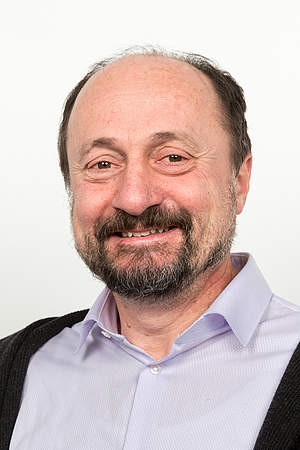Brain Prize Lecture - Awardees
Haim Sompolinsky
Brain Prize Lecture
How the brain represents the world
Haim Sompolinsky earned his PhD in Physics from Bar-Ilan University, Israel, and was appointed full professor at the Hebrew University of Jerusalem in 1986. He currently serves as a Professor of Molecular and Cellular Biology and of Physics (in Residence) at Harvard University, USA, and is Professor Emeritus of Physics and Neuroscience at the Hebrew University.
Sompolinsky is a pioneering founder of the field of computational neuroscience. His research utilises methods from statistical physics to explore the emergent dynamics and collective behaviour of complex neuronal circuits, with a focus on their role in critical brain functions such as learning, memory, perception, and cognition.
A key area of his work has been the study of the interplay between excitatory and inhibitory neural signals, a long-standing issue in neuroscience. His research has deepened our understanding of variability in neuronal firing, the mechanisms that stabilise neural dynamics, and the consequences of disrupted excitation-inhibition balance in neurological disorders.
In recent years, Sompolinsky has developed geometric-theoretic approaches to investigate cognitive functions, such as vision and language, in both artificial neural networks and biological brain circuits. His work has uncovered striking similarities between the two, creating new opportunities for studying intelligence in both natural and artificial systems.
Sompolinsky's research extends to the neuronal mechanisms underlying human voluntary movements, utilising behavioural and electroencephalogram (EEG) measurements as well as modelling. He also explores the implications of neuroscience and physics for understanding human freedom, agency, and moral responsibility.
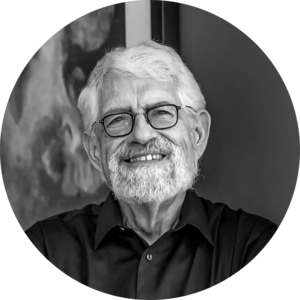
Prof. Michael Greenberg
Brain Prize Lecture
How Nature and Nurture Conspire to Regulate Brain Development and Plasticity
Michael Greenberg received a BA in Chemistry from Wesleyan University in 1976, and a Ph.D. in Biochemistry from the Rockefeller University, New York, in 1982. In 1986 he was appointed Assistant Professor in the Department of Microbiology and Genetics at Harvard Medical School, and he was made full Professor in 1994. Since 2008 he has been the Nathan Marsh Pusey Professor of Neurobiology at Harvard Medical School in Boston, MA, USA.
That our sensory experiences shape the structure and function of the brain is one of the profound discoveries in the field of neuroscience in the 20th century. Michael Greenberg’s seminal discoveries of activity- dependent gene transcription have revealed how nature and nurture cooperate to shape mammalian brain development and plasticity. Building on his early observation that neurotransmitter reception triggers the rapid induction of new gene expression, his work has focused on elucidating the nature and role of neuronal transcriptional programs induced in response to extracellular stimuli.
Work in the Greenberg laboratory has characterized the signal transduction pathways linking calcium influx at distal synapses to the neuronal nucleus, uncovered an extensive network of neuronal activity-responsive cis-regulatory elements that coordinate these gene expression changes, and demonstrated significant neuronal cell-type- and species-specific diversity in these transcriptional responses.
These studies have uncovered an important role for activity-dependent transcriptional responses in dynamically sculpting specific aspects of neuronal connectivity. Current work in his laboratory focuses on how these changes contribute to experience-dependent behavioural plasticity and understanding the basis of neurological diseases that arise when these processes have gone awry.

Prof. Silvia Arber
Brain Prize Lecture
Circuits for body movements
Silvia Arber, PhD, Biozentrum and Friedrich Miescher Institute for Biomedical Research, Basel, Switzerland.
Silvia Arber is a Swiss neuroscientist who holds a full professorship at the Biocenter of the University of Basel and is a senior group leader at the Friedrich Miescher Institute for Biomedical Research, in Basel, Switzerland. She is recognised for her work on the organisation and function of neuronal circuits controlling movement. Arber received her PhD from the University of Basel (1996) and carried out her postdoctoral work at Columbia University in New York (1996-2000). She has received numerous prizes and honours, including, most recently, the Brain Prize from the Lundbeck Foundation (2022) and election as an international member of the National Academy of Sciences (USA).

Prof. Michael A Moskowitz
Brain Prize Lecture
“The trigeminovascular system as a template for discovery in migraine”
Michael Moskowitz is a professor of neurology at Harvard and Massachusetts General Hospital (MGH). He trained as an internist at Yale and as a neurologist at Harvard Longwood and has dedicated his 50-year career to translational research. His lab is credited with conceiving and conceptualising the neuropeptide-containing trigeminovascular pathway (TVS) as a migraine treatment target. Along with collaborators, he discovered the sensory innervation to the circle of Willis and its first neuropeptide, inhibition of peptide release as an ergot/triptan mechanism, spreading depression as an upstream trigger for TVS activation, and recently, CSF-containing bony skull channels that appear to convey bidirectional signaling between the brain/meninges/skull bone marrow.
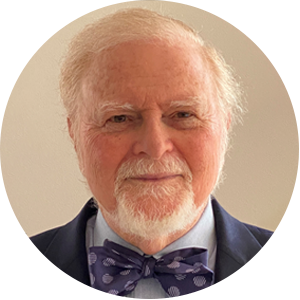
Huda Zoghbi, Houston, United States of America
Brain Prize Lecture
Rett syndrome from the clinic to genomes, epigenomes and neural circuits
Huda Y. Zoghbi, M.D., is Professor of Pediatrics, Neurology, Neuroscience, and Molecular and Human Genetics at Baylor College of Medicine, an Investigator with the Howard Hughes Medical Institute, and Director of the Jan and Dan Duncan Neurological Research Institute at Texas Children’s Hospital.
Zoghbi was born in Beirut Lebanon where she earned a B.S. from the American University of Beirut. She completed her M.D. at Meharry Medical College, and joined Baylor College of Medicine for training in Pediatrics, Neurology, and Molecular Genetics. Zoghbi’s clinical encounters with young girls with Rett syndrome inspired her to go into basic research. Her laboratory ultimately discovered the genetic cause of Rett syndrome and provided insight into the function of the gene in various neurons. Her discovery (with Harry Orr) that Spinocerebellar Ataxia type 1 is caused by expansion of a polyglutamine tract and her studies that such expansion leads to accumulation of the mutant protein has infomed studies of other neurodegenerative disorders. Zoghbi also discovered Math1/Atoh1 and showed that it governs the development of several components of the proprioceptive, balance, hearing, vestibular, and breathing pathways.
Zoghbi has trained over 90 scientists and physician-scientists who have gone on to successful careers. She was elected to the National Academy of Medicine, the National Academy of Sciences, and the American Academy of Arts and Sciences. Among Zoghbi’s recent honors are the Shaw Prize in Life Science and Medicine, the Breakthrough Prize in Life Sciences, the Canada Gairdner International Award, and the 2020 Brain prize.
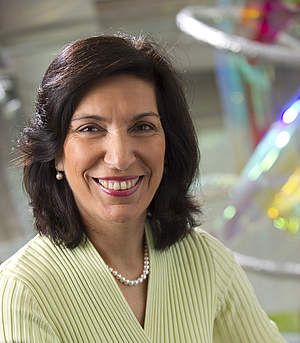
Hugues Chabriat, Paris, France
Brain Prize Lecture
CADASIL: yesterday, today, tomorrow
Hugues Chabriat MD PhD is born on 03-24-1963 in Reunion Island. He is currently tenured Professor of Neurology at University of Paris and head of the Department of Neurology at Lariboisière Hospital at APHP in Paris (France). He also heads the national referral center for rare vascular diseases of the brain and retina in France (www.cervco.fr). He was previously Vice-Chair of the French Neurovascular Society (SFNV). He has long been studying the clinical and imaging aspects of stroke and coordinated different clinical trials in his country. His research is particularly dedicated to the clinical and imaging features of cerebral small vessel disease with a strong expertise in hereditary forms of these disorders. He served as a principal investigator in different international networks (Leducq Transatlantic Network, ERANET EU) and currently co-coordinates a large trans-disciplinary network dedicated to research on cerebral small vessel diseases (RHU TRT_cSVD). He has published more than 250 research papers or chapters on stroke disorders or cerebral small vessel disease and is member of editorial boards of different scientific journals on stroke. Pr Hugues Chabriat has been awarded “THE BRAIN PRIZE” for his research on CADASIL in 2019.
Watch the interview with Hugues Chabriat here
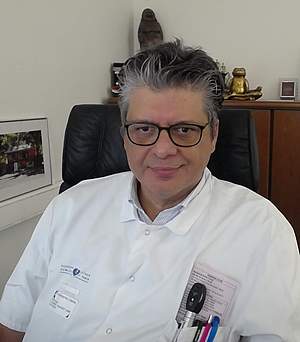
Bart De Strooper, Leuven, Belgium
Brain Prize Lecture
The prodromal, cellular phase of Alzheimer’s Disease: towards a novel understanding of the disorder
Bart De Strooper is scientific director of the UK-Dementia Research Institute since October 2016. He is professor of molecular medicine at the KU Leuven and VIB, Belgium and professor in dementia research at the University College London, UK.
Bart De Strooper’s scientific work focuses on the understanding of the fundamental mechanisms that underlie Alzheimer’s and Parkinson’s disease. His major findings are the role of ADAM10 and presenilin/gamma-secretase in the proteolysis of the amyloid precursor protein and Notch, and he has worked on microRNA, mitochondria, and more recently on the role of the different brain cell types in the pathogenesis of Alzheimer’s Disease.
He received his M.D. in 1985 and Ph.D. in 1991 from KU Leuven. He worked as postdoctoral researcher in the European Molecular Biology Laboratory (EMBL) in Heidelberg, Germany, in the laboratory of Carlos Dotti.
In 2018, Bart De Strooper, together with John Hardy, Christian Haas and Michel Goedert, was awarded the Brain Prize for their groundbreaking research on the genetic and molecular basis of Alzheimer disease. Other awards include the Potamkin Award of the American Academy of Neurology in 2002 (USA). the 2003 Alois Alzheimer Award of the Deutscher Gesellschaft für Gerontopsychiatrie und psychotherapie (Germany), the Joseph Maisin Prize in 2005 for fundamental biomedical sciences, (FWO Flanders, Belgium), the 2008 Metlife Foundation Award for medical research (USA) and the 2018 European Grand Prix for Research (France).
Watch the interview with Bart De Strooper here
